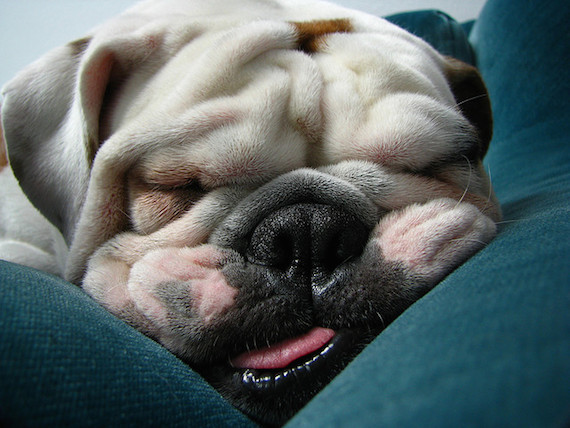What if you could do one thing that would put more money in your pocket, take inches off your waist, increase your intelligence, and make you happier? This may sound too good to be true, but it's actually something that you already do every day. If you are like most people, though, you haven't been giving this powerful habit the attention it deserves.
The one habit that can greatly impact all these areas of your life is sleep. Deep, restful sleep can spur fast improvements, and poor quality sleep can cause damage quickly. It's important to understand the effects of sleep, and what we can do to improve it.
The Connection Between Sleep and Money
Poor people sleep poorly. One study concluded that adults below the poverty line were over 50% more likely to report insomnia than middle class and wealthy adults. Specifically, the National Center for Health Statistics advised:
During 2012, the percentage of adults aged 18 years or older who reported that they regularly had insomnia or trouble sleeping during the past 12 months ranged from 15.8 percent for those with family incomes more than 400 percent of the poverty level to 24.8 percent for those with family incomes under 100 percent of the poverty level. For both men and women, the percentage who regularly had insomnia or trouble sleeping decreased as family income increased.
Want To Be Smarter? Sleep On It
According to Harvard Medical School:
When we are sleep deprived, our focus, attention, and vigilance drift, making it more difficult to receive information. Without adequate sleep and rest, over-worked neurons can no longer function to coordinate information properly, and we lose our ability to access previously learned information.
Anything that requires you to use your brain is going to be an uphill battle if you are not getting high quality sleep.
How Inferior Sleep Makes You Fat
Whatever diet you may follow, from vegan to paleo, it's going to be less effective if you're getting lousy sleep. Sleep specialist Dr. Richard Simon notes, "People who don't sleep adequately have physiologic abnormalities that may increase appetite and calorie intake."
Overeating on any nutritional program is counterproductive. Even if you have the willpower to stick to your program, why fight an over-stimulated appetite when you don't have to? Improve your sleep, and you may find your diet is much easier and more effective.
Lack of Sleep Can Make You Clinically Depressed
Sleep is so important that insomnia can make you clinically depressed, even if you've never had a history of depression. Mayo Clinic sleep specialist Dr. Robert Auger states, "People with insomnia and no history of depression would be four times more likely to develop depression than individuals with no history of insomnia." If your mood hasn't been what you want it to be, perhaps its because your sleep isn't what it should be.
How Just One Habit Can Impact So Much
It may seem implausible that one habit can affect so many other things. However, there is research on the far-ranging impact of changing just one habit. In the bestselling book The Power of Habit, author Charles Duhigg explains:
Keystone habits start a process that, over time, transforms everything. Keystone habits say that success doesn't depend on getting every single thing right, but instead relies on identifying a few key priorities and fashioning them into powerful levers.
Establish the keystone habit, and many other positive changes follow. It's like a stack of dominoes knocked down after the first has been pushed. Sleep is a powerful keystone habit.
Problems Are Common Despite Simple Solutions
If you haven't been getting plenty of quality sleep, don't beat yourself up. It's such a common problem, that the Center for Disease Control has declared "insufficient sleep is a public health epidemic." The good news is simple changes can go a long way to a high quality, restful night's sleep:
- No electronics in bed. Don't watch video or read email until you fall asleep. Ideally, give yourself at least an hour free of electronics before bedtime.
Also, you may consider using supplements before bed to help establish a new pattern of high quality sleep. L-Theanine is a compound found in green tea which promotes relaxation, and has been found to improve sleep. Melatonin can be helpful if you have jet lag or irregular sleep patterns, as it helps set your body's clock. Of course, consult a doctor before you start taking supplements.
To ensure that the changes you make are working, track your sleep. There are numerous devices that will monitor the quality and duration of your sleep, including Jawbone Up, FitBit, and Apple's upcoming iWatch. It's possible to make dramatic changes in a short period of time, and measuring your sleep will let you know if you are on the right track.
Get started improving your sleep tonight. Your memory, waistline, mood, and bank account will thank you.
Also on HuffPost:

